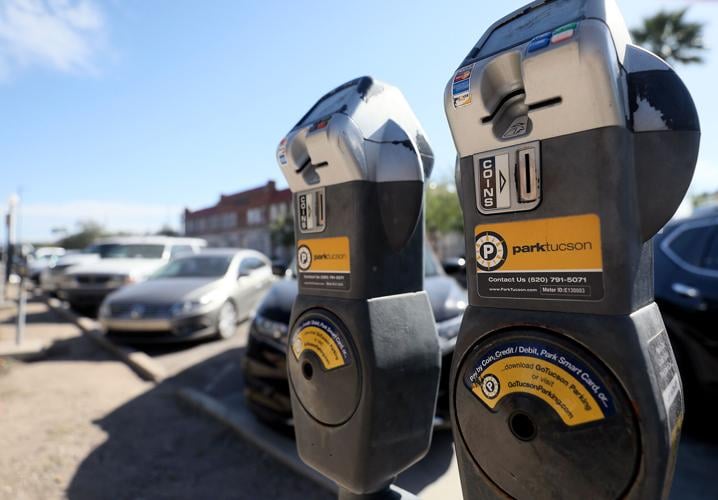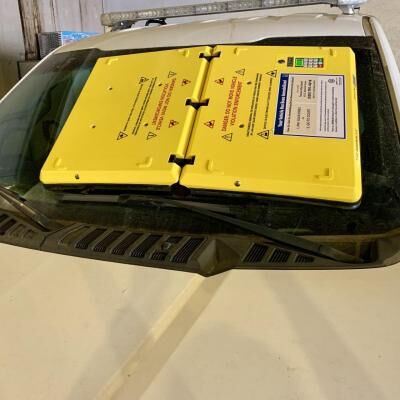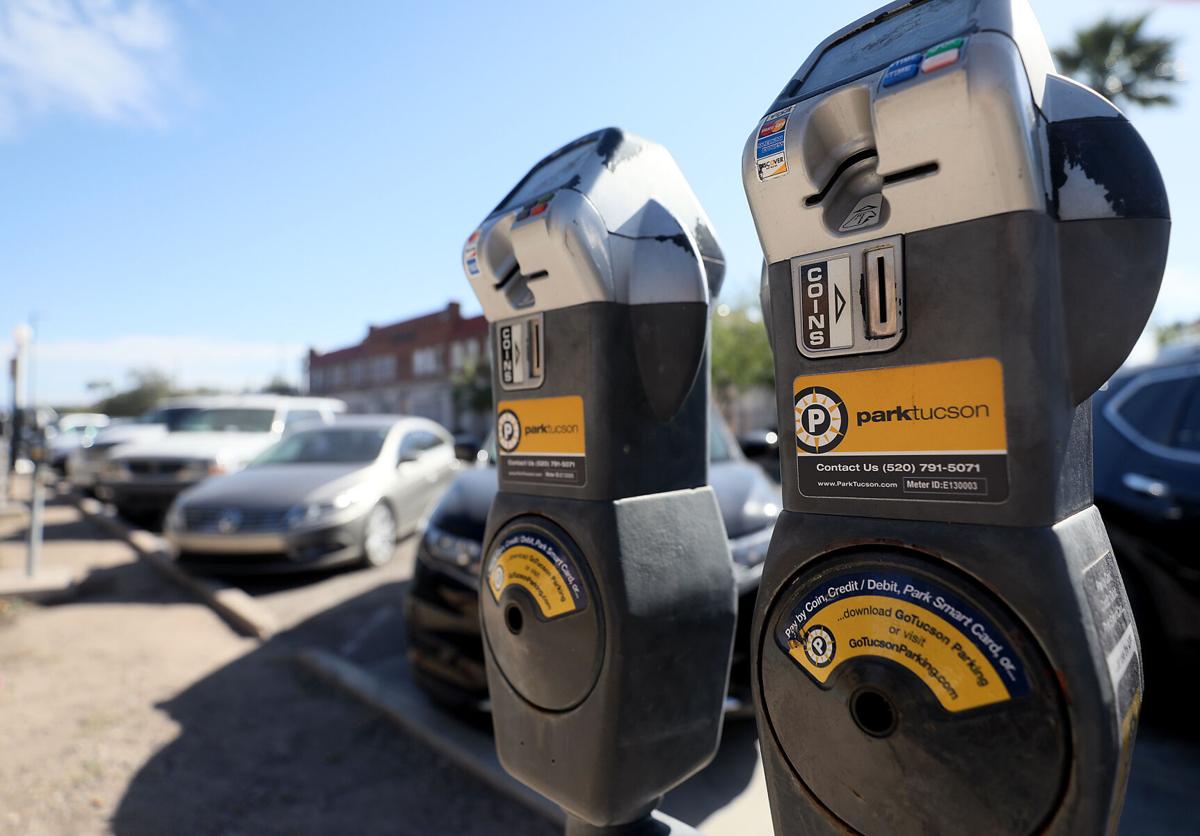Tucson has made progress toward collecting the hundreds of thousands of dollars it’s owed in unpaid parking tickets, signaling that efforts are underway to make sure local drivers pay up.
As of Nov. 1, more than 700 “scofflaws’’ — or drivers with at least three unpaid tickets — collectively owed about $880,000 for violations like blocking driveways or parking in handicapped areas. While still a high-dollar figure, that’s about a 7% decrease from June.
The progress is thanks to a new program that allows the city to immobilize or “boot” cars owned by scofflaws for the first time in over a decade.
Statistics show the initiative may be more effective than the 7% reduction suggests: It has already reversed a yearslong trend of uncollected fines skyrocketing in Tucson. For comparison, the dollar amount of delinquent fines increased by nearly 50% during the two years before the program’s launch.
Officials said the program adds teeth to Tucson’s previously weak ticket enforcement practices — and that the recent progress is just the beginning of their efforts to snag scofflaws across the city.
“That’s just in a few months, so if you extrapolate that to a full year that would be a pretty good reduction,” said Park Tucson administrator Donovan Durband, who oversees the program. “If people understand there is a consequence to not paying fines, we hope that they will not only pay them on time in the future and not let them accumulate, but that they will also be more compliant with the parking codes in the first place.”
The initiative was made possible by new technology that allows officers to view a list of scofflaws while on patrol. In the past, they had no way of knowing which cars had outstanding tickets.
The new list includes drivers who have at least three tickets that have not been paid or challenged within 45 days. Once they’re designated as scofflaws, a device called a “barnacle” can be installed on their car to prevent them from driving away.

A “barnacle” like this one is stuck to a vehicle's windshield using remote-controlled suction cups. It blocks a driver's view so they can't move their car, and is used as one of the city's tools to collect delinquent parking ticket fines.
Scofflaws then have two days to deal with the citations until their vehicle is towed, but it rarely gets to that point. Durban said 15 barnacles have been used since August and only one has resulted in a car being taken by the city.
He also believes the enforcement efforts drove some scofflaws to voluntarily pay their debts.
“I think the fact that there was a reduction, part of it is explained directly from the barnacleing, but I think indicates that some people just chose to take care of it on their own so they wouldn’t have the barnacle installed,” Durband said.
Tucson’s scofflaws received a warning letter ahead of the program’s first start date in 2019, which was pushed back until this year because of the pandemic. The city also sent out another notice this summer before the booting actually took effect.
Still, many of the most egregious ticket-dodgers remain in debt to the tune of tens-of-thousands of dollars.
The top 50 scofflaw vehicles represent over a quarter of all uncollected fees despite their owners accounting for only 7% of the individuals with unpaid tickets in the city.
Those drivers’ debts ranged from $2,600 to $21,500, and the top scofflaw has nearly 100 unpaid parking tickets.
Durband said all unpaid ticket fines will continue to grow as late fees are tacked on by the city courts, making the situation worse for those who owe money.
“If they end up paying it later, they’re going to end up paying a lot more,” Durband said. “It just always behooves you to not have a ticket in the first place, the next thing is when you get a ticket to pay it or resolve it as soon as you can.”
Delinquency can also create issues for Park Tucson because a chunk of the fines are used to pay workers and fund enforcement. When that money doesn’t come through, more taxpayer dollars could be needed to cover costs.
Officials admitted that some of the larger debts will probably go uncollected, however. The top scofflaws have accumulated tickets over many years and some of them — like students or other temporary residents — may no longer be in Tucson, leaving the city with little recourse.
Durband said he’ll “just be happy to see continued progress” towards reducing the outstanding ticket fees owed to the city. He said that the new program is expected to help the city keep up with new scofflaws while chipping away at the existing list when possible.
Drivers with unpaid tickets, regardless of whether they’ve been booted, can read more about their payment options on Park Tucson’s website.
Payment plans are also available through the City Court by calling 791-4216 or visiting the courthouse at 103 E. Alameda St. on weekdays from 8 a.m. to 4:30 p.m.






